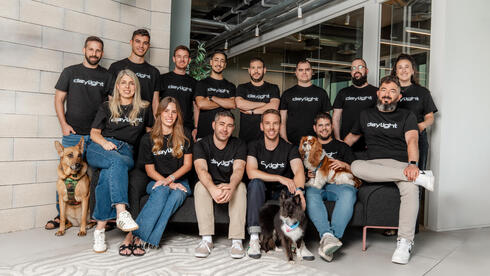

Cyber startup Daylight Security emerged from stealth on Tuesday with $7 million in Seed funding and a plan to combine artificial intelligence with experienced human analysts in managed security services. The round was led by Bain Capital Ventures, with participation from Maple VC and a group of notable Israeli angel investors, including Torq co-founders Ofer Smadari, Leonid Belkind, and Eldad Livni; Cyera co-founders Tamar Bar-Ilan and Yotam Segev; and EON founder Ofir Ehrlich.
The startup’s pitch is straightforward: organizations facing increasingly complex cyber threats need faster detection and response but often lack the resources to build large in-house security teams. Daylight’s model blends automated AI “agents” that handle data analysis and initial investigation, with analysts who interpret and act on alerts.
The company says this approach reduces response times and lowers the burden on internal security teams, a challenge familiar to many large enterprises struggling to keep up with growing threat volumes.
Managed Detection and Response (MDR) services have become a fast-growing segment of the cybersecurity market. Research firms project the global MDR sector will exceed $15 billion by the end of the decade, as businesses increasingly outsource parts of their threat monitoring and incident response.
Related articles:
But traditional MDR providers have drawn criticism for relying heavily on manual processes and for producing too many alerts that turn out to be false positives, wasting time and staff resources. Founders Hagai Shapira and Eldad Rudich, both veterans of Israel’s intelligence community and former early employees at security automation company Torq, say Daylight aims to address this gap by using AI more actively while still relying on people for final judgment.
The company says its service is already in use by clients in finance and technology, though it did not disclose names. Daylight currently employs about 20 people and plans to hire more engineers and sales staff in the coming months.
Daylight joins a wave of new companies trying to bring AI deeper into core cybersecurity tasks, at a time when attackers are also adopting automated tools.




